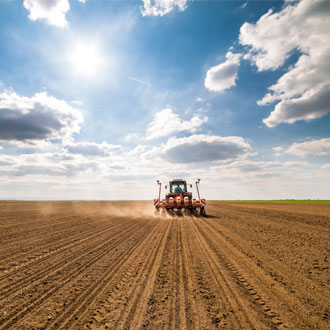Planning the future of the family farm
Deciding what to do with the farm in future years is one of the biggest challenges in the UK’s farming community: should it be held by the family and the farming continue, should it be sold, could a suitable tenant be found and the farm handed over to them, or are there other options?
Whilst farmers cannot always expect the next generation to take on the family business, many are keen to keep the farm within the family. With this in mind, planning who will run the farm in the future is becoming an increasingly pressing issue. However, alternatives to selling the farm can offer exciting prospects.
UK farming desperately needs new entrants in order to maintain competitiveness, energy and innovation – without losing the wisdom of the established farmers. Many farm and estate businesses who bring in fresh pairs of hands have benefited from the new approaches and different perspectives that passionate new entrants can bring.
At a time when routes into the farming industry are few and far between, there are several options available to agricultural landowners, which not only work in their favour as a method of succession but also open the sector up to young farmers. Moreover, these options often give farmers the opportunity to continue being involved with the aspects of the farm they enjoy, while moving away from the more demanding tasks.
A tenancy agreement allows the family farm to thrive
One such option is granting a tenancy agreement, which involves the landowner renting their land or buildings to a tenant for an agreed time period. For the landlord, this choice yields an income with virtually no risk or responsibility (as long as he finds a good tenant!). Similarly, tenants have the freedom to make their own decisions and run the farm as they wish.
At present, many farm business tenancies have a two-year term; however, farmers with such a short term will not want to invest significantly in the holding, as they will not reap the benefit. With this in mind, there have been calls from the Tenant Farmers Association to bring in tax breaks for longer farm tenancies, encouraging tenants to grow and invest sustainably.
On the other hand, a farming partnership can often be a practical and flexible solution. These can be used by existing farmers who wish  to combine their respective enterprises, or by a single farmer who wishes to partner with another - maybe younger - farmer, in the absence of a successor within the family. This is an idea which has not been sufficiently explored but has great potential.
to combine their respective enterprises, or by a single farmer who wishes to partner with another - maybe younger - farmer, in the absence of a successor within the family. This is an idea which has not been sufficiently explored but has great potential.
The idea of handing over a business, or indeed any major change in a business, can be financially and emotionally stretching, often exacerbated by the fact that the family home is intrinsically linked to the business. While both tenancy agreements and partnerships can offer practical and flexible solutions, they have important implications for both the farm and the family.
Therefore, when considering the future of the farm, it is necessary to consider how any changes will affect the business structure and the possible tax implications further down the line. For example, setting up a tenancy agreement will ultimately affect whether Agricultural Property Relief (APR) is allowed on a farmhouse. In scenarios where the farmhouse is not occupied for the purposes of agriculture at the point of the owner’s death (e.g. the landlord living in the farmhouse while a tenant runs the farm business), the farmhouse no longer qualifies for APR. On the other hand, entering into a farm partnership can allow individuals to preserve this tax relief.
An increasing number of farmers have diversified in recent years - whether that be through the addition of ‘glamping’ sites or the letting of farm buildings for non-agricultural industrial or business uses. However, it is important to note that diversification can affect tax reliefs which the farmer would be eligible for. While agricultural businesses are exempt from paying business rates, diversification projects may attract business rate assessments.
From a legal perspective, for every arrangement, it is important for all involved parties to enter into a robust agreement which confirms the length of the arrangement and the obligations of both sides.
Whilst all agreements are made with the best intentions in mind, it is sensible to expect that issues will arise in some shape or form during any farming arrangement. However, by preparing a written agreement which ensures that all parties are clear on the aims and objectives of the arrangement from the start, landowners can avoid many of the common problems.
Peter Snodgrass, agriculture partner at law firm, Shakespeare Martineau.
- Log in to post comments

